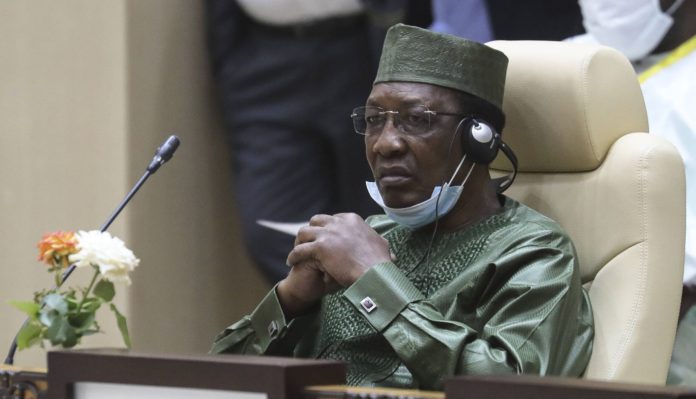Chad’s President Idriss Déby has died of his injuries following clashes with rebels in the north of the country at the weekend, the army has said.
The announcement came a day after provisional election results projected he would win a sixth term in office.
The BBC said government and parliament have been dissolved. A curfew has also been imposed and the borders have been shut.
Déby, 68, spent more than three decades in power and was one of Africa’s longest-serving leaders.
An army officer by training, he came to power in 1990 through an armed uprising. He was a long-time ally of France and other Western powers in the battle against jihadist groups in the Sahel region of Africa.
Déby “breathed his last defending the sovereign nation on the battlefield”, an army general said on state TV on Tuesday.
A military council led by Déby’s son, a 37-year-old four star general, will govern for the next 18 months.
Mahamat Idriss Déby Itno will lead the council but “free and democratic” elections will be held once the transition period is over, the army said in its statement.
Ahead of the election on 11 April, Déby campaigned on a platform of bringing peace and security to the region.
But there has been growing unhappiness over his government’s management of Chad’s oil resources.
The latest clashes began on Saturday. An army general told Reuters news agency that 300 insurgents were killed and 150 were captured. Five government soldiers were killed and 36 were injured, he said. The figures could not immediately be verified.
Some foreign embassies in the capital have urged their staff to leave.
N’Djamena has come under rebel attack before and there was panic in the city on Monday, with parents taking their children home from school, when tanks were deployed along the main roads.






















